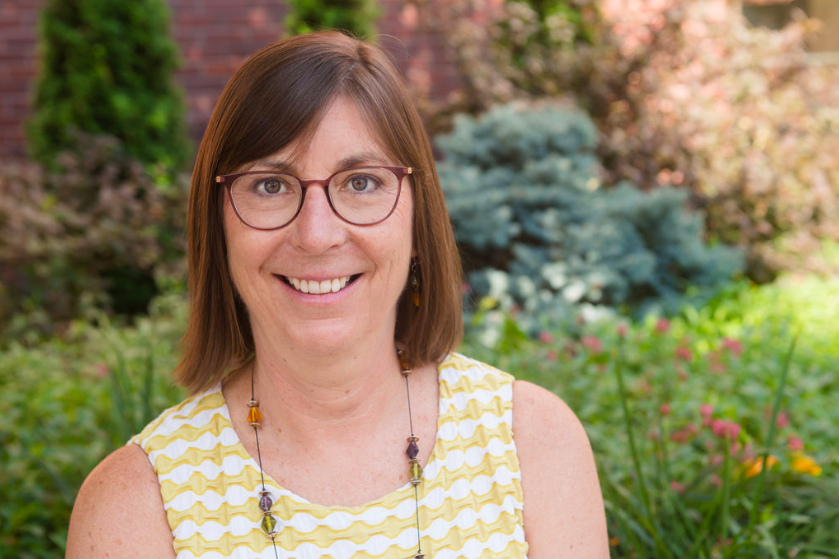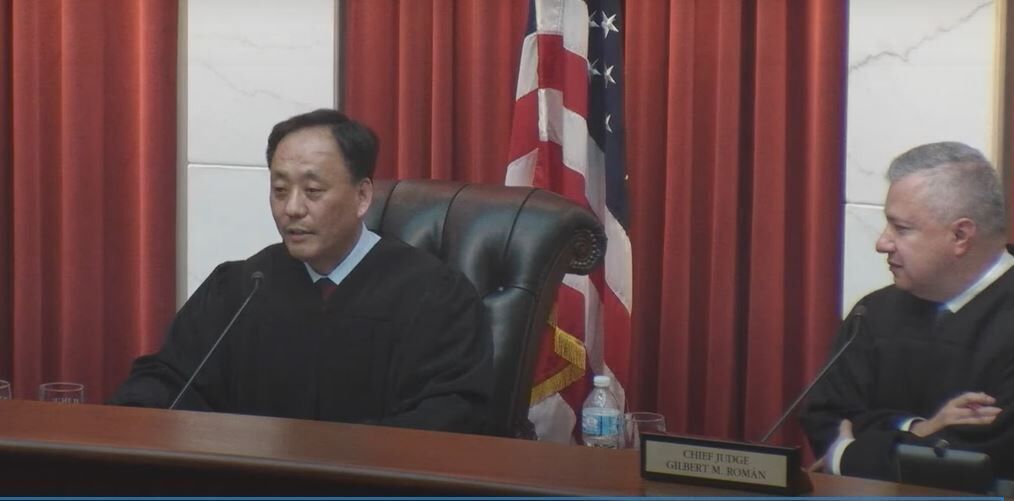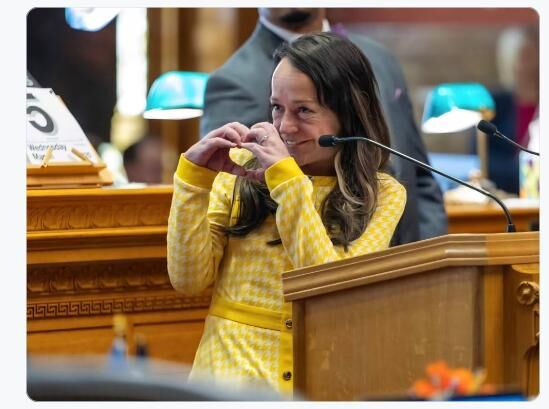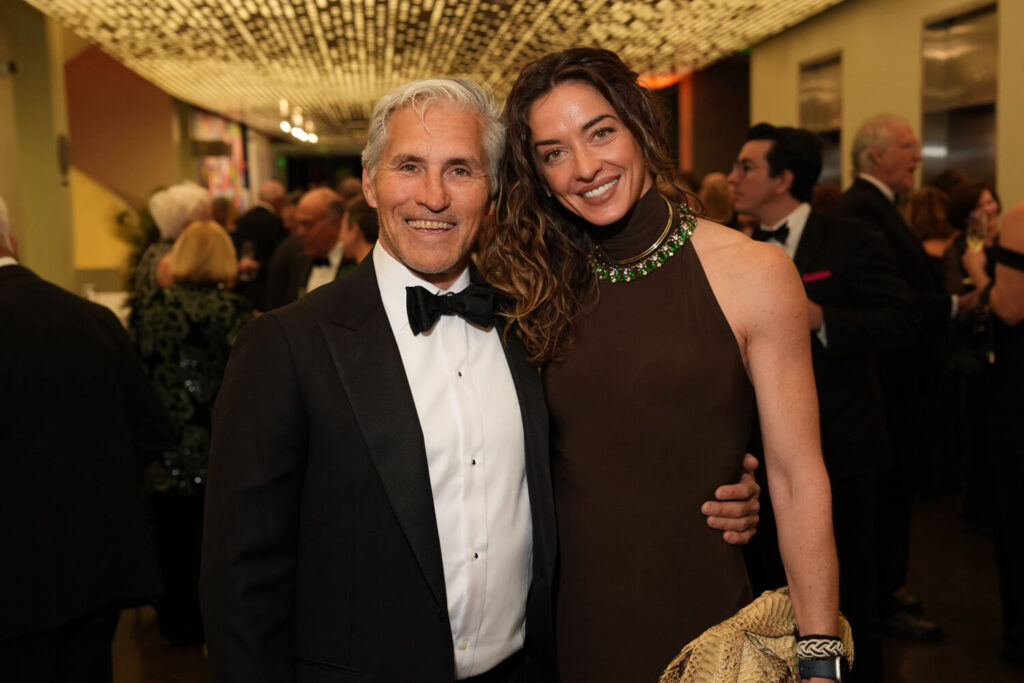Q&A with Carol Hedges | ‘We’re all better off — when we’re all better off’

If tap dancers and smooth-talkers shape a whole lot of our politics, it’s the wonks who craft our policy. Like self-described tax nerd Carol Hedges.
The co-founder and executive director of the quietly influential Colorado Fiscal Institute is one the most prominent voices on fiscal policy in Colorado’s progressive political circles, and she and her colleagues at the institute are among the state’s most forceful advocates for tax reform with a leftward tilt.
Hedges also has been among the most consistent critics of Colorado’s groundbreaking Taxpayer’s Bill of Rights (TABOR), which voters placed in the state constitution in 1992. Fans of the policy say it democratized fiscal policy by requiring a public vote on all tax increases. Hedges maintains it actually undermines fiscal democracy and further entrenches what she asserts is an unequal tax code.
As she puts it in this week’s Q&A, “What TABOR did was turn every tax policy decision into a political campaign. And who benefits from that?”
So, who should lead on fiscal policy in Colorado? And what should be done about a tax code that she says leans too heavily on our neediest citizens – and too little on the wealthiest? Hedges steps up to the plate on those and other fiscal matters that have bedeviled Colorado policy makers for years.
Colorado Politics: Colorado Fiscal Institute (CFI) toils for change from somewhere left of center, within the progressive range of Colorado’s political spectrum. You no doubt cheered last November when voters cleared the Capitol of Republican control, removing an impediment to some of your basic legislative priorities. Tell us what some of those priorities are – what you hope to see lawmakers accomplish in this new political climate.
Carol Hedges: For the Colorado Fiscal Institute, our priorities are policies that promote equity and widespread economic prosperity across the state. The board of CFI is bipartisan and we’ve worked with legislators from both parties to pass legislation that makes the state a more equitable place to live and work.
We also work with allies to figure out the most effective ways to make sure everyone in Colorado benefits from the Colorado way of life and the strong economy we’ve seen the last few years.
In particular, tax equity and adequacy are our focus. The rules about who pays taxes are just as important as how many dollars are available to invest in our communities. Fundamentally, the tax code and the economy don’t care which party you support. When we talk about advancing widespread prosperity, that means an economy that works for everyone no matter their political persuasion.
This year our legislative priorities include implementing a child tax credit to help hardworking families make ends meet, making saving for college a more attainable goal for all Coloradans, and prudent approaches to using the increased revenue the state is collecting from our strong economy. We’re excited that some of the most important bills we’re supporting this year have bipartisan support.
Carol Hedges
- Executive director and co-founder, Colorado Fiscal Institute, since its inception in 2013.
- Worked with the similarly named Colorado Fiscal Policy Institute, a partner organization of the State Priorities Partnership under the umbrella of the Washington, D.C.-based Center on Budget and Policy Priorities.
- Was on the founding staff of the Denver-based, politically progressive Bell Policy Center, where she was the primary author of Ten Years of TABOR.
- Served as policy director in the office of then-Gov. Roy Romer, beginning in 1996 when she moved to Colorado.
- Previously worked for the National Governors’ Association in Washington, D.C.
CP: When you and Kathy White started your organization in 2012, what space – void? – were you aiming to fill in the realm of political advocacy in Colorado, i.e., what kind of voice had been missing?
Hedges: When we started CFI we were building on a foundation of 15 years of fiscal policy work as the Colorado Fiscal Policy Institute, a project of the Colorado Center on Law and Policy. At the time, there were a lot of organizations who talked about the role of taxes within the scope of specific policy issues, but nobody in the progressive policy space was focused exclusively on taxes, budgets, and economic policy.
We wanted CFI to be a data-supported, clear voice promoting equity and widespread economic prosperity and the role taxes and public investments play in promoting those goals.
“Tax” tends to be a bad word in Colorado. I think many of us take living in such an incredible place for granted. We forget so many of the things that build our cool Colorado way of life are the products of public investments and taxes.
Coloradans have an innovative spirit, yet too often our great ambitions are hampered by our short-sighted approach to paying for the things we know build thriving, sustainable communities. A lot of what we see at the forefront of the policy discussions are ways the state is underfunding investments in education and transportation, but we don’t see very much discussion about how taxes and spending are linked.
CFI wants to drive a conversation about how that link plays out in a state where our constitutional tax code makes everything so much harder than in other places.
We also wanted to support allies in their work to keep Colorado awesome. We are willing and able to play the part of the tax nerds in the movement. I think we’ve succeeded there.
CP: Some would say economics boils down to tradeoffs – you get something; you give up something. Or, as economists put it, everything has an “opportunity cost.” As a master budgeter, you can appreciate that. You’re no fan of Colorado’s constitutional taxing and spending limits – you are involved in the latest organized effort to repeal the policy – yet doesn’t it simply provide voters that same kind of choice between tradeoffs? Meaning, a choice between keeping more money in their pockets and investing more in state or local services and infrastructure. What’s the harm in affording voters that option?
Hedges: Nothing about TABOR is simple. And one of the most mischaracterized parts of that 1992 amendment to our constitution is its role in giving voters authority over taxes. The power of the people of Colorado to approve or disapprove tax increases wasn’t given to us by TABOR; it was in the state’s founding constitution. What TABOR did was turn every tax policy decision into a political campaign. And who benefits from that?
Voters in Colorado cherish their role as decision makers in their communities. We have diverse lifestyles from region to region and all of us share a basic understanding of the fundamentals of any community: schools, transportation, opportunity for folks to get the skills they need to support themselves. We all know, as you stated, that we can’t get something for nothing.
Unfortunately, when we put our tax code in the constitution, we made permanent a system that, among other things, locks in place a tax code that results in the wealthy few paying a smaller percentage of their income in state and local taxes than people who earn incomes that are in the middle or below the median. When you see CFI talking about an upside-down tax code, that’s what we mean.
Some folks who benefit from the upside-down tax code want us to believe that by reforming or repealing TABOR, Coloradans will lose their role as decision makers, and that is simply not true. Ultimately, Colorado voters will decide how they want to fund the important priorities for their communities and whether TABOR helps or hurts.
CP: Words like “fiscal” and “budget” aren’t exactly showstoppers in the English lexicon – despite the pivotal importance of the subject matter. How do you tell your story and hold the attention of the public and even lawmakers – many of whom are easily distracted by headline-grabbing, hot-button issues?
Hedges:What I find when I talk to people across the state is that the memory of the Great Recession is still fresh in the minds of many Coloradans. Fiscal policy and budget issues may not grab many headlines, but people in every part of the state continue to be focused on economic issues.
Even though some people and regions are benefiting from economic growth, the rising costs associated with our growing and changing economy are keeping many from feeling economically secure. My job, and the job of the staff at CFI, is to remind Coloradans of the relationship between the taxes they pay and the myriad ways those taxes help them and their communities.
Nationally, we’ve seen a conversation about tax fairness spring up almost overnight, and that helps make it easier to talk about why Colorado is a place where fair tax policies can work. People increasingly understand that our upside-down, unfair tax system is contributing to deteriorating roads, more expensive college tuition, and crowded classrooms.
So while fiscal policy isn’t always spelled out in the headlines, it’s at the core of the issues we face as a state.
CP: Colorado’s governor isn’t vested with as much fiscal authority as are some counterparts in other states; a lot of that power rests, in theory, with the legislature and more specifically with the legislative Joint Budget Committee. And yet, a lot of past and present JBC members will tell you that in recent decades, their hands have been tied by constraints like TABOR, the property-tax-limiting Gallagher Amendment and the school-spending mandates of Amendment 23. Where in your judgment should fiscal authority for the state lie? Would changes be needed in statute, and perhaps the constitution, to bring about your vision in this regard?
Hedges: Given how some of the anti-public investment talking heads tend to characterize me and my organization, this may come as a shock to them, but I truly believe the people should hold the power in community policy making, including fiscal policy. Unfortunately, their power is actually limited by the constraints put in the Colorado constitution because the people we elect to represent us and our interests in statewide policymaking have their hands tied behind their backs. Rural communities are struggling as they adjust to new industries, tariffs, and depopulation. Even the powerful JBC is hamstrung by outdated constitutional constraints that don’t allow any of our elected officials to adapt to changing economics.
We should complement the power of voters provided by the initiative process with greater responsibility for elected officials in solving the state’s economic challenges.
CP: In remarks published in response to Gov. Jared Polis’s State of the State speech in January, you said Colorado’s tax system “disproportionately benefits corporations and wealthy individuals.” What changes would you propose to the state’s tax code, and would there be sufficient political support?
Hedges: One of the biggest developments in tax policy in Colorado over the last 10 years is the regular publication of the Colorado Department of Revenue’s Colorado Tax Profile & Expenditure Report and the Office of the State Auditor’s series of Tax Expenditure Compilation Reports. These reports help us understand who is benefitting from current tax rules. They really help us when we examine the various contributing factors to the upside-down tax code that disproportionately benefits the wealthy.
Coloradans are pragmatists. We know it’s not folks who earn the highest incomes who are struggling to find a home they can afford or pay the rent. We know it’s not the wealthiest who are weighing whether or not to go to the doctor because it might mean they won’t be able to pay for child care that month. We know it’s not the top 1 percent who see the rising cost of basic things like putting food on the table and wonder why their wages aren’t keeping up. Coloradans support fiscal policy solutions that call for more equitable and more adequate taxation.
I believe the best way to figure out tax policy solutions for our diverse state is through shared policymaking responsibility and authority between voters and elected representatives, and I think voters are ready for that conversation. I’m really looking forward to engaging people about how they can play a role in empowering themselves and their neighbors to keep Colorado an awesome place to live for generations to come.
CP: What brought you to Colorado – you’re from Kansas and spent time in the nation’s capital – and what keeps you here professionally and personally? To the extent Colorado is still to be regarded as swingable and purple, would a policy wonk and dedicated advocate like you have as much fun in a Maryland or a Massachusetts, where the political establishment would be overwhelmingly and reliably on your side?
Hedges: Like many of the people who live here but weren’t born and raised in Colorado, I fell in love with the state when I visited as a young girl. When my husband and I returned from a Foreign Service post in Côte d’Ivoire in West Africa, we were looking for a great place to raise our two kids. Colorado was at top of the list. We both love to hike and sleep under the stars. My husband loves to fish. We love the city life of Denver and the tranquility of the mountains.
I wouldn’t dream of doing this work anywhere else. I do the work I do because this is such an incredible place that deserves to be preserved and supported – especially as more people discover how awesome it is to live here and want to experience the Colorado way of life for themselves. It’s not just the natural beauty that make Colorado awesome. It’s the geographic and cultural diversity. And the more I travel the state, the more I find that we agree more than we disagree about our values.
I firmly believe in the notion that we’re all better off when we’re all better off. Helping identify the kinds of economic policies that allow us all to be better off is what animates my work life.














